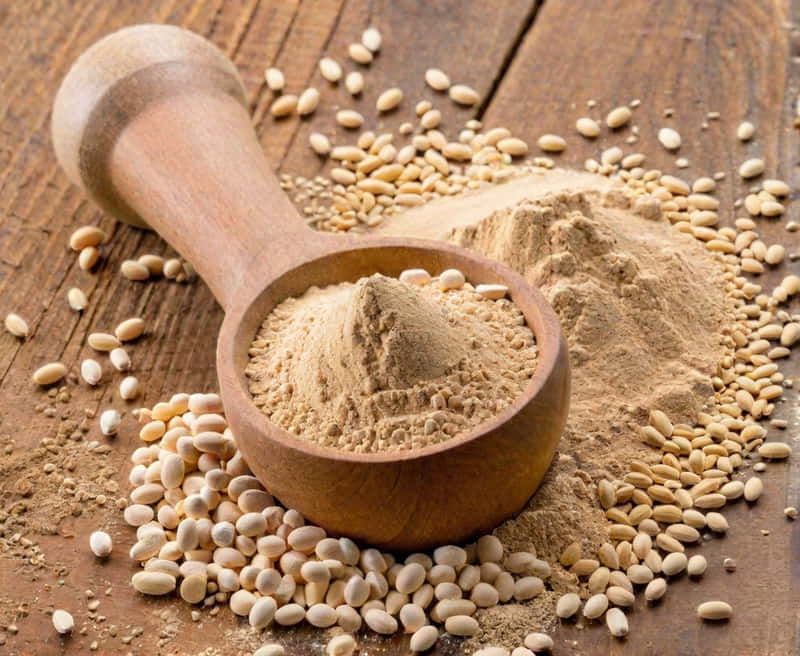Let’s start with the basics. Protein powder is a dietary supplement derived from various sources such as whey, casein, soy, or pea protein. It’s commonly used by individuals looking to increase their protein intake, whether for muscle building, weight loss, or overall health.
Composition of Protein Powder
Protein powder typically consists of concentrated or isolated protein derived from its source. It may also contain additional flavorings, sweeteners, and vitamins.
Types of Protein Powder
Whey Protein
Whey protein is one of the most popular forms of protein powder. It’s fast-digesting and rich in essential amino acids, making it ideal for post-workout recovery.
Casein Protein
Unlike whey protein, casein is slow-digesting, providing a sustained release of amino acids over time. It’s often consumed before bedtime to support muscle recovery during sleep.
Soy Protein
Soy protein is derived from soybeans and is a suitable option for vegetarians and vegans. It contains all essential amino acids and has been associated with various health benefits.
Pea Protein
Pea protein is another plant-based option, often preferred by individuals with dietary restrictions or allergies. It’s easily digestible and boasts a high concentration of protein per serving.
Benefits of Protein Powder
Muscle Building and Recovery
Protein powder is widely recognized for its role in muscle building and repair. Consuming adequate protein can help support muscle growth and recovery, especially when combined with regular exercise.
Weight Management
Protein promotes satiety, helping individuals feel full and satisfied after meals. Incorporating protein powder into a balanced diet can aid in weight management by reducing hunger and cravings.
Convenience and Versatility
Protein powder offers a convenient way to increase protein intake, especially for those with busy lifestyles. It can be easily mixed with water or milk or added to smoothies and recipes for a quick and nutritious boost.
How to Choose the Right Protein Powder
Consider Your Goals and Dietary Preferences
When selecting a protein powder, it’s essential to consider your specific goals, whether they’re muscle building, weight loss, or dietary restrictions. Additionally, consider your taste preferences and any allergies or intolerances you may have.
Read Labels and Ingredients
When choosing a protein powder, be sure to carefully read the labels and ingredients list. Look for products with minimal added sugars, artificial flavors, and unnecessary fillers. Opt for high-quality protein sources and reputable brands.
Incorporating Protein Powder into Your Routine
Post-Workout Shake
A protein shake post-workout can help replenish glycogen stores and kickstart muscle repair. Mix protein powder with water or milk for a quick and convenient recovery drink.
Meal Replacement
Protein powder can also be used as a meal replacement for those on the go or who want to control their calorie intake. Blend protein powder with fruits, vegetables, and healthy fats for a balanced and nutritious meal alternative.
Potential Side Effects and Considerations
Digestive Issues
Some individuals may experience digestive discomfort, such as bloating or gas, when consuming protein powder. Start with a small serving size and gradually increase as tolerated. Additionally, choose protein powders with added digestive enzymes to aid digestion.
Allergies and Sensitivities
If you have allergies or sensitivities to certain ingredients, such as dairy or soy, opt for a hypoallergenic protein powder or alternative protein sources.
Conclusion
In conclusion, protein powder is a versatile and convenient dietary supplement supporting various health and fitness goals. Whether you’re looking to build muscle, manage weight, or increase your protein intake, there’s a protein powder out there to suit your needs. Remember to choose high-quality products, consider your goals and preferences, and incorporate protein powder into a balanced diet for optimal results.
FAQs (Frequently Asked Questions)
- Is protein powder suitable for everyone?
- Protein powder can benefit most individuals, but it’s essential to consult with a healthcare professional, especially if you have any underlying health conditions or concerns.
- How much protein powder should I consume per day?
- The recommended protein intake varies depending on age, gender, activity level, and goals. As a general guideline, aim for 0.8-1 gram of protein per pound of body weight per day.
- Can I use protein powder for weight loss?
- Protein powder can be incorporated into a weight loss plan as part of a balanced diet and exercise regimen. It can help increase satiety and preserve lean muscle mass while reducing overall calorie intake.
- Are there any risks associated with consuming protein powder?
- While protein powder is generally safe for most people, excessive consumption may lead to digestive issues or nutrient imbalances. Following recommended serving sizes and monitoring your overall protein intake from both food and supplements is essential.
- How should I store protein powder?
- Store protein powder in a cool, dry place away from direct sunlight to maintain freshness and quality. Ensure the container is tightly sealed to prevent moisture and contamination.
- Ali, R. (2024d, June 7). What Causes Acid Flux? Health Link Pharmacy. https://healthlinkpharmacyllc.com/what-causes-acid-flux/
- Ali, R. (2024c, June 7). How Much Omega-3 Should You Take per Day? Health Link Pharmacy. https://healthlinkpharmacyllc.com/how-much-omega-3-should-you-take-per-day/
- Ali, R. (2024c, June 7). 12 Benefits of Taking Fish Oil: A Comprehensive Guide. Health Link Pharmacy. https://healthlinkpharmacyllc.com/12-benefits-of-taking-fish-oil-a-comprehensive-guide/
- Ali, R. (2024d, June 7). Health Effects of Eating Too Much Sugar. Health Link Pharmacy. https://healthlinkpharmacyllc.com/health-effects-of-eating-too-much-sugar/
- Ali, R. (2024h, June 7). What is Pollen Allergy? Health Link Pharmacy. https://healthlinkpharmacyllc.com/what-is-pollen-allergy/

